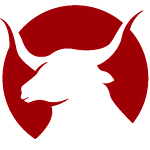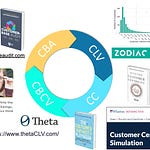This Part 1 of my interview with Fred Swaniker, founder of Africa Leadership Academy (ALA), Africa Leadership Univerity (ALU) and ALX (among others). Fred is one of Time Magazine’s Most Influential People in the World and has done the requisite mainstage TED talk. I believe this is the only time he has publicly talked about marketing.
Subscribe to the podcast: Apple, Sticher, TuneIn, Overcast , Spotify. Private Feed.
Transcript:
Edward: My guest today is Fred Swaniker. Fred was born in Ghana but had to leave the country when he was four years old to escape a military coup. By the time he was 18, he'd lived in four African countries. Today's episode dives into his career, Macalester College, McKinsey, Stanford, Africa Leadership Group, ALA, ALU, ALN, and a mainstage TED talk. Fred's latest venture is ALX, a leadership development and talent sourcing platform. We are lucky to have him here today.
Fred, you've never had a CMO role per se, but you've largely been the one responsible for growing your businesses, and I've never met anybody in my life who's better at fundraising. I think fundraising (in general) is a sales skill, but I would argue you've managed to do it by building a brand and then having people throw money at you. Where did you learn your marketing skills? How did you become a marketer?
Fred: I wish it was as easy as you make it sound that people just throw money at me. I think that my approach to fundraising has really been one of not trying to do the hard sell. I really believe in establishing relationships and win-win partnerships that enable us and whoever we are partnering with to both achieve our goals.
We've been able to raise about US$600 million in the last 15 years, from [...] different ventures, and I would say that probably about 50%–60% of the funds that were raised, I never asked for it. Our approach is really to inspire people and just share the stories of what we're doing, and those who are interested in what we're doing will step up and will join us, those who are not will move on. Maybe it could be the way I was brought up. My parents always told me never to go and ask people for money. I always thought, can I find a way to build a relationship that adds value and shows people the worthiness of what we're doing? If people see that, then they'll come to us and they’ll participate in our vision.
Edward: Fred, what happens before the building of the relationship? That before you can build a relationship with someone who's willing to write you a hundred million dollar check, you must have built a personal brand or a company brand that gets you there. How did you do that?
Fred: Over the years, I've developed a framework that I use for establishing relationships, and I break it down into four steps. First, I met thousands of people around the world. Every person that you meet, there's some connection that you have. Maybe there’s some mutual interest, you share a joke, there’s some chemistry that you have with someone. That's stage one, which is the connection. Then maybe you exchange business cards, you exchange emails, et cetera.
Then you enter the second stage which is a continuous interaction. This is when you're exchanging communication, you're meeting up for coffee every now and then, having lunch, you actually have some dialogue and then mutual exchange. Only a few of the connections move to that stage of continuous interaction. From the continuous interaction, people start to see whether you are someone who delivers on what you say you're going to do, and you establish credibility based on integrity, et cetera.
From there, you get to trust, which is the third phase. Once you have trust, finally, and only once you have trust, then you get to collaboration, which is where someone could say, I'm going to invest in you. I'm going to donate funds. I'm going to join your board, et cetera.
I think one of the mistakes I made earlier in my career was I would rush straight to stage four (collaboration) without going to the continuous interaction and building trust first. That's the way I approach relationships.
Edward: How did you learn that, though? You made that mistake early in your career. How did you come to the realization that there was this four-step process? Did you read about it? Did you learn it from a mentor? Did you figure it out on your own?
Fred: I read about this. There’s one book that I read called Mega Gifts. It's written by this guy called Jerold Panas who interviewed about 100 people who had given more than $1 million to things, and asked them why they gave. It was really fascinating just learning about some of the philosophy behind that.
Before that, when I started the African Leadership Academy, I had never raised money before really. I went to see the Dean of the Stanford Business School where I went, and I said, you raised a lot of money. How did you do it? That time, the Stanford Business School had just raised US$300 million from Phil Knight, the founder of Nike. I went to see him and I said, how did you do this thing. He said, “The first thing you do is never ask for money the first time you meet someone. Just show them what you're doing. Get them involved in what you're doing in some way. Invite them to see the campus. Get them onto a board or something. Then, only once you’ve built a relationship with them, do you then engage them in possibly supporting you financially.”
I must say that there'd been some times when that rule didn’t work. I remember very early on, I met this very successful technology executive. She came to South Africa on a business trip and we met. We had this lovely lunch and at the end of the lunch, she said, so Fred, why did you want to see me today? I was like, well, perhaps you can help us structure some thinking about our technology strategy for the university, for the [...] I said, okay, that sounds good. She had a relationship with the President of South Africa in terms of that. So I said, perhaps you can connect us to him, et cetera? Then she goes, is there anything else? I was with my co-founder, Chris Bradford, and he's kicking me under the table, as in, asking for the money.
I was just remembering this advice from the dean who said, don't ask for the money the first time you meet someone, and this was the first time we ever met. I decided to just take a chance because she was really saying, ask me for the money. I said, we're hoping perhaps you could support us financially, and she said, I thought you’d never ask. She said, I was sold on your idea when I heard about it, so consider it done. She gave us $100,000 the next week, and she went on to give us about $500,000 over the next few years.
Ultimately, you have to read the signals and understand when someone is ready to be asked. I think a lot of marketing is like that. You're taking someone through a journey with you and people have choices about where they can spend their money. If you wait too long before you ask for the money, you lose the deal. If you don't wait long enough and you asked too soon, you also lose the deal. So it's about really knowing when is the right time when you read the signals about whether this person is really interested in your product or service, and they’ve demonstrated through their actions and their behaviors that they’re really interested in what you have to offer. At that point, it's a mutually beneficial partnership.
Edward: That's great, Fred. I want to go back and understand the path of how Fred became Fred. I have this theory that what people do when they're 12–14 years old affects them for their entire lives. I'm not even sure what country you were living in when you were 12–14 years old. What were you doing around that age?
Fred: I was there in between Botswana and Zimbabwe at that time. I had just started high school, I guess.
Edward: What did you care about? What were you spending your time doing? What were you passionate about at that age?
Fred: At that time, I was always reading about different kinds of technologies, and I was very passionate about planes. I was curious about how they worked. I used to read a lot about different kinds of planes around the world. I was always trying to invent things with my friends. I also started getting a bit into the business.
I remember at the time, these Nike shoes and Reeboks were coming out and they were very popular. My family was from Ghana originally and we used to go back home every now and then. There were these secondhand Nike and Reebok shoes that have been brought imported to Ghana. It's kind of gross now that I think back then. You could buy them there at a really low cost. I would bring them back to Zimbabwe and try to sell it to my friends.
I also was very passionate about gathering people. My home was the place where most of my friends from school would come and gather in the afternoons and we would just hang out. I loved bringing people together and having them connect with each other. If I look today, a lot of the work that I do, it has really been involved in building networks. I can say, perhaps that was shaped by that early experience because if I think about what we have done in creating that leadership group, it's been a massive exercise in networks. We've created a network of about 30,000 people with some of the most influential people in the world who have joined us in this mission. It has led to all sorts of exciting collaborations. Part of it is I really enjoy bringing people together and creating communities. I think perhaps that started then.
Edward: So Fred, a lot of what you did as a child influenced your mission in life. Did you have skills when you're a child that influenced your career trajectory and where you are today? Was it these connection skills?
Fred: One of the skills that I learned was how to adapt very quickly and to build relationships with new people. I was born in Ghana. I left there when I was four, and went to Gambia. Then when I was eight, I went to Botswana. When I was 12, I went to Zimbabwe. As a result, I had to learn how to adapt to different environments very quickly. I'd been to a new school every few years and I had to quickly make friends with different people.
So, relationship building became something that I practiced very early on. As I mentioned earlier, I used to bring my friends together every afternoon and we’d just hang out, play games, and so forth. That became a skill as well.
I believe I'm really good at designing experiences for people that make them have fun, and that makes them enjoy being in a place. That probably comes from some of those things that I was doing at that age.
Another skill that I would say I developed is the ability to see patterns. A lot of my ideas today come from exposure to different countries I’ve been to, different people that I've met. I fill my life with a lot of diversity. That catalyzed a lot of the innovation for me because I'm able to connect the dots between something that is actually in this country, or that I heard from this person that I spoke to, or an idea that I read about in technology or in healthcare that I can bring into my work in education.
I'm constantly scanning the universe to see what's going on and I'm able to bring together ideas from these creative persons to create new products that are quite distinctive. I think part of that comes from the fact that I was always in different environments and I had to absorb very quickly in this new environment that I went to, to be able to survive.
Edward: You went to university at Macalester College. How did you come out different than when you went in?
Fred: Macalester—if you don't know about it—has a culture that cares very much about social justice and about the world. When I went in there, I would say that I cared about the world, but I wouldn't say that I was obsessed about making a difference. I was going there to get a degree and get a job. But when you go to Macalester, every other week, there's some kind of protest against some social injustice.
I remember the students took over the President's Office once because Macalester was buying their athletic gear from Nike. At that time, Nike had sweatshops in Southeast Asia. There was always this protest or that protest. It was very clear that you had to make a difference in the world.
I would say that my social conscience changed. Even though my very first job outside of Macalester was not something that I would say was altruistic and made sense—I was working with McKinsey management consulting—I saw that very much as a means to an end because, by the time I left, I had really seen that I could make a difference in Africa.
In fact, one of the things I did in my final year at Macalester was I wrote my honors thesis, where I looked at the trends that had happened in Africa in the last 50 years. I saw some exciting changes that were happening at that time. I predicted what I was going to do. Also, I predicted how Africa was going to evolve over the next 50 years. Many of the trends that I saw influenced my passion to go back to Africa.
I would say that what Macalester did, it really made me a lot more passionate about the world, about making an impact in the world. The time that I had there enabled me to really do this honest thesis, understand that Africa was about to undergo a massive transformation, and it made me really excited about going back to play a role in that transformation.
Edward: Fred, what would have happened if you hadn't left Africa then? If you had gone to college in Africa, instead of going to Macalester, how would your life have been different?
Fred: My life would've been different in a couple of ways. Number one is I don't believe how to build networks. Some of the networks that I have today led me to do what I'm doing. My networks probably would remain very Africa-centric, maybe very Ghana-centric, or Zimbabwe-centric, whichever country I would have gone to.
The second way my life would have been different is I wouldn't have developed such a global perspective. A lot of the work that I do, even though I'm based in Africa, involves leveraging global networks, global insights, global technology. I always think about what's going on in the world and how do I bring it to Africa, and how do I take Africa to the global stage.
Finally, I don't think that I would have been as dedicated or passionate about social transformation because (like I said) you can’t go to Macalester and not believe that you have to make a difference in the world. Kofi Annan, the former Secretary-General of the UN, had been to Ghana. He had been to Macalester a few decades before me. I remember being there and everyone's like, oh, you're from Ghana. Kofi Annan also went here. It was almost like you're expected to live up to his track record. I think those influences would not have been there if I hadn't gone to Macalester.
Edward: It's interesting. By leaving Africa, you became more passionate about Africa.
Fred: Exactly. What’s interesting is when I arrived there I remember walking into the cafeteria at Macalester. In Africa, most people watch American TV, so a lot of people were always trying to mimic American accents. That was the cool thing. But when I landed in Macalester and I went to the cafeteria and I asked for food, there was a woman behind the counter. Actually, she was quite cute, and then she said, I love your accent.
I suddenly realized that actually my African accent was cool in the US. That made me a lot prouder to be an African, and I really dived in more into it. The fact that I lived all across Africa really made me reflect on how special it was to be an African.
Edward: Fred, what were the biggest failure points in your career? Where did things not go as expected?
Fred: Oh, I've had so many failure points, but maybe I'll talk about two. One was about a year-and-a-half into my career at McKinsey. A client asked for me to be taken off the project. That was a real blow to me because my career had been rising very much in McKinsey at that time. I'd always had really great reviews on all my projects. But I had really pissed off the client that basically the CEO asked that I remove them from the project team.
What had happened was I was a young kid. I was 22–23 and I was advising very senior people in the company. I thought I needed to show them how clever I was. I was always showing them how they were wrong and I was right about whatever idea I had, coming in and advising them then. I guess I thought that that was the way I should show value.
I basically came across as an arrogant old prick. I learned a big lesson then, that when you are working with other people, you actually shine if you resist from showing off what you know. You actually will do a much better job at building relationships with others if you make them look great, instead of you trying to be great in the situation.
What a very powerful lesson. It made me a lot more humble and made me realize that just because you think you know or thinking of the answer, doesn't mean you need to tell everyone about it. That was a very powerful lesson.
Another lesson I learned was, after Stanford Business School, I started both the African Leadership Academy and something called Global Leadership Adventures at the same time. GLA was a summer program where we're going to bring kids from all across Africa, so all around the world to come to keep time for three months. It was the very first summer, and I went and rented out this holiday resort by this beautiful beach in Cape Town. The holiday resort could take about 150 people. I believed that we were going to get 150 kids from the US to show up in Cape Town, paying us $4,000 for a one-month experience each.
I booked out the whole place for three months, then we went on the road trying to sell this thing. I signed a terrible legal agreement that committed me to pay for the full thing no matter how many students showed up. Lo and behold, we only got 35 kids to pay. I was [...] for 150 rooms. They just would not let me out of that contract.
I ended up giving away another 30 slots for free. We had 70 kids who started being in that summer program, but I had to pay for 150 rooms. That was a very powerful lesson in being very humble when you make your financial projections for a startup, and also making sure you have a good lawyer when you're signing contracts.
These are some of the powerful lessons that I learned from my failures. I can just go on and on and on, but I can only say I've grown simply because of my failures.
Edward: I think being a bit more humble can be a lesson for all of us. We'll pick this up tomorrow in part two.








Share this post